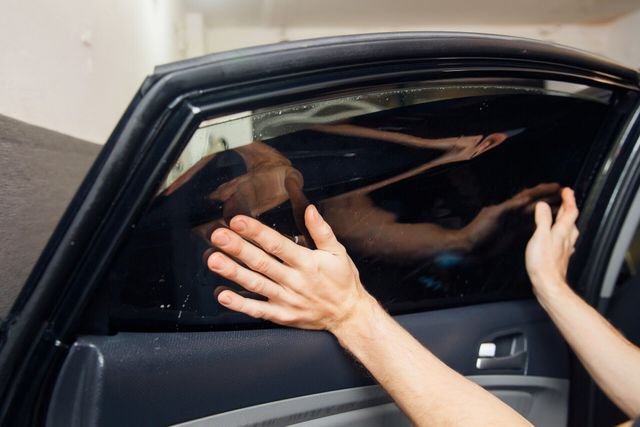Window tinting benefits in vehicles
Window tinting benefits in vehicles. Window tinting is a popular aftermarket modification for vehicles that offers a variety of benefits. One of the primary advantages of window tinting is its ability to reduce the amount of heat that enters a vehicle. This can help keep the interior cooler and more comfortable, especially in hot climates. Additionally, window tinting can block up to 99% of the sun's harmful UV rays, providing protection for the vehicle's interior and preventing damage such as fading or cracking.
Another benefit of window tinting is that it can reduce glare from the sun, headlights, and other sources of bright light. This can help improve visibility and reduce eye strain while driving. Tinted windows can also provide increased privacy and security by making it more difficult for people outside the vehicle to see inside. In the event of an accident, window tinting can help prevent shattered glass from flying into the vehicle and potentially injuring the occupants.
Window tinting also offers several additional benefits. For example, it can help reduce energy costs by reducing the workload on the vehicle's air conditioning system. Tinted windows can also protect the interior of the vehicle from cracking and fading, as well as prevent theft by making it more difficult for potential thieves to identify valuable items. In terms of health benefits, window tinting can reduce the amount of UV exposure that vehicle occupants receive, which can be harmful to human skin.
Finally, window tinting can enhance the overall driving experience by creating a more comfortable and enjoyable environment. This is due to its ability to reduce heat, glare, and distractions. Additionally, tinted windows can give a vehicle a sleek and stylish appearance, which can be appealing to many vehicle owners.
Window tinting has several benefits for vehicles:
Reduced Heat: Window tinting can help reduce the amount of heat that enters a vehicle, keeping the interior cooler and more comfortable.
UV Protection:
Window tinting can block up to 99% of the sun's harmful UV rays, which can help protect the interior of the vehicle from fading and damage.
Glare Reduction:
Tinted windows can also reduce glare from the sun, headlights, and other bright sources of light, which can help improve visibility and reduce eye strain while driving.
Increased Privacy:
Window tinting can make it more difficult for people outside the vehicle to see inside, providing increased privacy and security for the occupants.
Safety:
In the event of an accident, auto tint can help prevent shattered glass from flying into the vehicle and potentially injuring the occupants.
Aesthetic appeal: Tinted windows can also enhance the overall look of a vehicle, giving it a sleek, stylish appearance.
However, it's important to note that different states and countries have different laws regarding window tinting, so be sure to check the regulations in your area before having your windows tinted
interior over time, causing materials such as leather to crack or fade. By blocking up to 99% of UV rays, window tinting can help protect the vehicle's interior and keep it looking new for longer.
Glare Reduction:
Tinted windows can also help reduce glare from the sun, headlights, and other sources of bright light. This can help improve visibility and reduce eye strain while driving, especially during dawn or dusk when the sun is low in the sky.
Increased Privacy:
Window tinting can provide increased privacy and security for the occupants of a vehicle. By making it more difficult for people outside the vehicle to see inside, tinted windows can help deter theft and keep personal items out of view. This can be especially important for individuals who frequently park in high-traffic areas or leave valuables in their vehicles.
Tinted windows can also help prevent shattered glass from flying into the vehicle during an accident. By holding the glass together in the event of an impact, window tinting can reduce the risk of injury to the occupants of the vehicle.
Window tinting can significantly reduce the amount of heat that enters a vehicle through the windows. This is especially important in hot climates or during the summer months, when temperatures can soar and make it uncomfortable to sit in a parked car or drive without air conditioning. By reducing the heat entering the vehicle, window tinting can help make the interior cooler and more comfortable.
In addition to reducing heat, window tinting can also provide protection against harmful UV rays from the sun. These rays can cause damage to the vehicle's
Energy Savings:
Window tinting can also help reduce energy costs by reducing the workload on the vehicle's air conditioning system. By reducing the amount of heat that enters the vehicle, tinted windows can help the air conditioning system work more efficiently, which can lead to improved fuel efficiency and lower energy costs over time.

Comments
Post a Comment